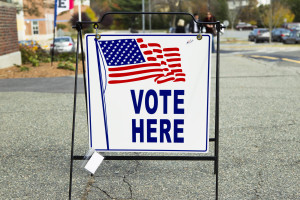A high-profile voter rights lawsuit in Winston-Salem, North Carolina featured several plaintiff expert witnesses who have testified about the effect state voting laws have on African American, Hispanic, and other minority communities. Recent laws passed by the North Carolina legislature have been challenged by plaintiffs who allege they were designed to discourage minority voters from casting their votes leading to an important federal trial that could impact similar laws across the country. In an effort to demonstrate the negative impact that the voting laws have on minority communities, plaintiffs have summoned an array of expert witnesses to testify.
Minority Communities Challenge North Carolina Voting Laws
In 2013 North Carolina Governor Pat McCrory (R) signed legislation that reduced early voting days, put a stop to same-day voter registration, ended out-of-precinct voting, and ceased a program that allowed for preregistration by 16 and 17-year-old students. According to the law’s supporters, the measure was designed to save money by cutting administrative costs and give voters confidence that the process was secure from voter corruption or fraud. The law also mirrors similar measures taken by other states which do not have early voting or out-of-precinct ballots, and its supporters have repeatedly denied accusations that it was racially motivated with aims of reducing minority voter activity.
Minority advocacy groups such as the NAACP disagree, however, and argue that North Carolina’s history of racism and suppression of minorities suggests the motivation to pass the voting legislation was more sinister than advertised. Attorneys for the Department of Justice, who has taken the lead in the Civil Rights lawsuit challenging North Carolina’s voting laws, argue that the laws were intentionally designed to discourage minority voting. Legislatures, the DOJ argues, knew full well that the citizens who relied on many of the now-cut programs were black or Hispanic at the time the law was passed, and purposefully steered the state’s voting regulations to suppress minority votes.
The North Carolina voting law was passed shortly after the Supreme Court eliminated provisions of the Voting Rights Act of 1965 which required certain southern states, including North Carolina, to submit any voting legislation to federal reviewers for approval. Plaintiffs allege that the state took advantage of the relaxed requirements for voting legislation oversight, and instituted an intentionally discriminatory set of regulations. To support this argument, plaintiffs spent the early days of the Civil Rights lawsuit to call several expert witnesses who testified about the effects of such voting laws and the influence of North Carolina’s history of racial discrimination.
Expert Witnesses Testify in North Carolina Voting Law Case
The plaintiffs relied heavily on expert witnesses with academic backgrounds who specialize in researching the effect social and economic conditions of minority groups like African Americans and Hispanics have on voting practices. The long list of experts includes prominent researchers such as:
- Morgan Kousser from Cal Tech is an expert in Southern politics and voting who closely examined the text of North Carolina’s voting bill, its legislative history, and statistics about minority voting practices. According to Dr. Kousser, the voting practices eliminated by North Carolina were primarily used by minority voters, and legislatures were made aware of this fact before passing the bill. While Dr. Kousser could not point to a single legislator who demonstrated discriminatory intent, he noted that the state officials were well aware of the impact the law could have on minority communities.
- Lynne Vernon-Feagans who is an expert witness researching poverty at the University of North Carolina Chapel Hill testified that poor African Americans would struggle to access voting stations and comply with other provisions of the North Carolina law because of the impact of poverty. Dr. Vernon-Feagans is not a voting expert witness, but was able to explain to the court that the logistics of voting under the new law would significantly hinder African American voters.
- Barry Burden is an expert witness from the University of Wisconsin who specializes in political science research and he took the stand to explain that the costs of the law would be felt more heavily by black and Latino voters, suggesting that it would disproportionately discourage those minorities from voting.
In addition to these expert witnesses, the plaintiffs called political science and voting experts who attempted to explain to federal Judge Thomas Schroeder that North Carolina’s voting law will disproportionately impact minority citizens, and the legislators who passed it were aware of the law’s effect. Judge Schroeder is presiding over the trial without a jury, and will make his decision after both sides finish presenting their argument.




